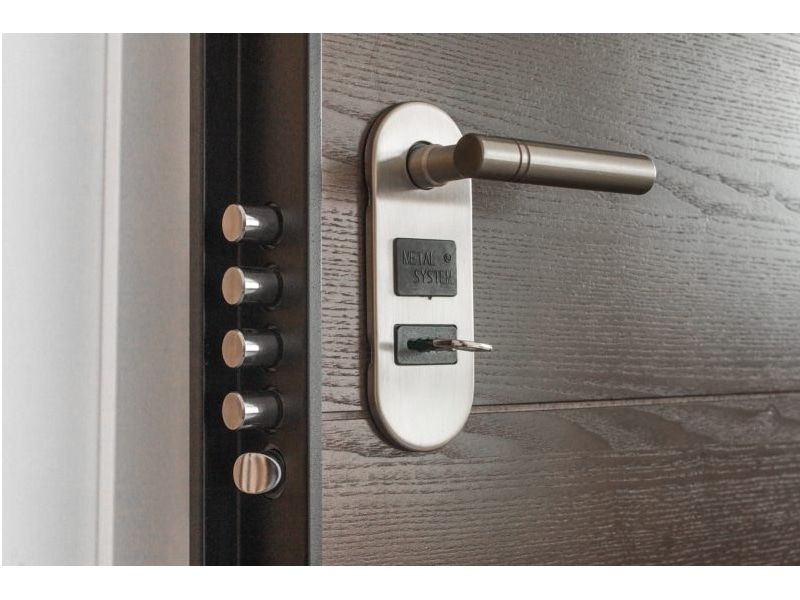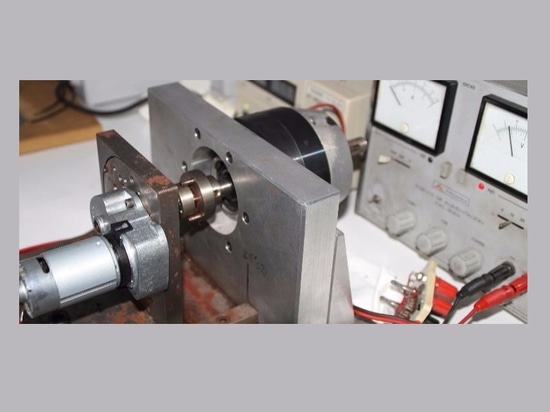
#Product Trends
Security locks: guidelines to choose the most suitable
Security locks are very important when guaranteeing safety in different places. These systems are not only useful in homes or stores, but are also essential for the functioning of different types of machines, such as safes, shopping carts, lockers, e
Depending on the device where they will be used, different types of locks will be required. In the following article we tell you about the different types in existence and how to choose the most suitable.
Types of security locks
When choosing the right security lock, the most important thing is to identify the specific need of the device or location where it will be implemented. A door requires a different type of lock than a safe.
It is also important to keep in mind the material that it is made out of. Almost all locks are nowadays manufactured out of different types of steels (stainless, galvanized, reinforced or solid), but you can also find them in iron or nickel.
There are different types of locks on the market, each with specific characteristics. These are:
Cylinder lock
These are the most common, and get their name due to the cylindrical structure of the center part with a pear-shaped body. This type of lock can be found in different versions, such as high-security locks with anti-bumping, anti-extraction, anti-drill and anti-lockpick cylinders, to address different needs.
Mortise locks
These locks have a device in the handle that is used to open from the inside, which makes the bolt move. Traditionally, they have been installed on bathroom and internal home doors to separate one area from the other, and be able to open from the interior.
Rim locks
They are usually installed on thin doors. This is why they are used in terraces and garden access doors. Their mechanism is exposed on one of the sides.
Bored cylindrical lock
In these types of locks, the doorknob and the lock are combined into a single mechanism. They are usually installed in places or areas of a home with the same purpose as mortise locks. The difference is that they can be locked or unlocked from inside by pushing a button. They are ideal for bathrooms, bedrooms or offices that we want to lock from the inside.
Multipoint locks
This type of lock is the most widespread in home main access doors due to their high level of protection. Their main feature is that they have several bolts at the center, as well as the top and bottom of the door. These locks are activated by a single internal system that locks them at the same time. They are highly secure and, of course, the hardest to force.
Electronic or digital locks
These locks are similar to those founds in hotels and are available in various types and models: activated by an alphanumerical code, fingerprint, mobile phone & app, Bluetooth and others. This type is also known as smart lock.
Recommended reading: Success story: coin-operated locks for supermarket carts
What is the most suitable lock for each type of door?
If you want to increase the effectiveness of locks, you also need to choose the most suitable door for each situation.
Armored doors: these types of doors offer a high level of security, which is why they would need to be equipped with a lock that offers the best performance. This means that using a multipoint lock is recommended for this type of door.
Reinforced doors: these doors are not too resistant, which means that a multipoint lock with several bolts should also be installed to strengthen their security.
Solid doors: these doors see significant use in interiors, which is why installing mortise locks or cylindrical locks would suffice.
Metallic doors: these doors, which are insulated due to their polyurethane content, should be equipped with cylindrical or multipoint locks in order to increase their security.
Recommendations to choose the best security lock
In order to choose the best security lock you will need to consider the quality of the materials that they are built with. You can choose locks made out of iron, nickel or stainless steel.
In addition to the material, you need to choose a security lock that is equipped with an extra protection against bumping. Bumping is one of the most used techniques nowadays to force a lock open. It consists of inserting a modified key into the lock’s cylinder and striking it with the purpose of “bumping” its pins.
This makes the cylinder’s pins simultaneously jump when the key is struck, allowing it to turn and, therefore, to open the security door. In order to avoid this technique, the most highly recommended is to use a lock that has an anti-bumping mechanism.
Despite choosing the best safety lock, in time they always suffer from wear, which leads to failures. Which is why it is important to know the main failures, so as to be able to address them as soon as possible.
You might be interested in: Electric doors: available systems and how to optimize them
Common failures in high-security locks
These are the most common failures that may appear in high-security locks:
The key doesn’t go into the hole: This may happen due to a damaged key or dirt in the cylinder. To fix this, you need to file the key correctly to avoid rough edges and carefully clean the cylinder.
The bolt doesn’t work: Misalignment of the bolt due to the regular use of the door. This can be fixed by tightening the bolts/strike of the door or lubricating the bolt with graphite spray.
The bolt gets jammed: This may happen because the door has moved for some reason. This can be fixed by moving the bolt to a new position or adjusting/replacing the hinges of the door to restore it to its original position.
Difficulty turning the key: This may be due to poor lubrication. To fix this, apply graphite spray, and if this doesn’t work you will need to change the lock.
Need help choosing the best security lock for your devices or mechanisms? At CLR we can help. We are experienced in the development of an electronic lock that is activated via smartphone, a motion sensor or a wireless key, which improves the performance using the best materials and manufacturing methods.
Contact us and find out more about this smart lock.




